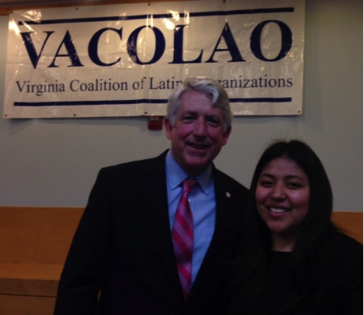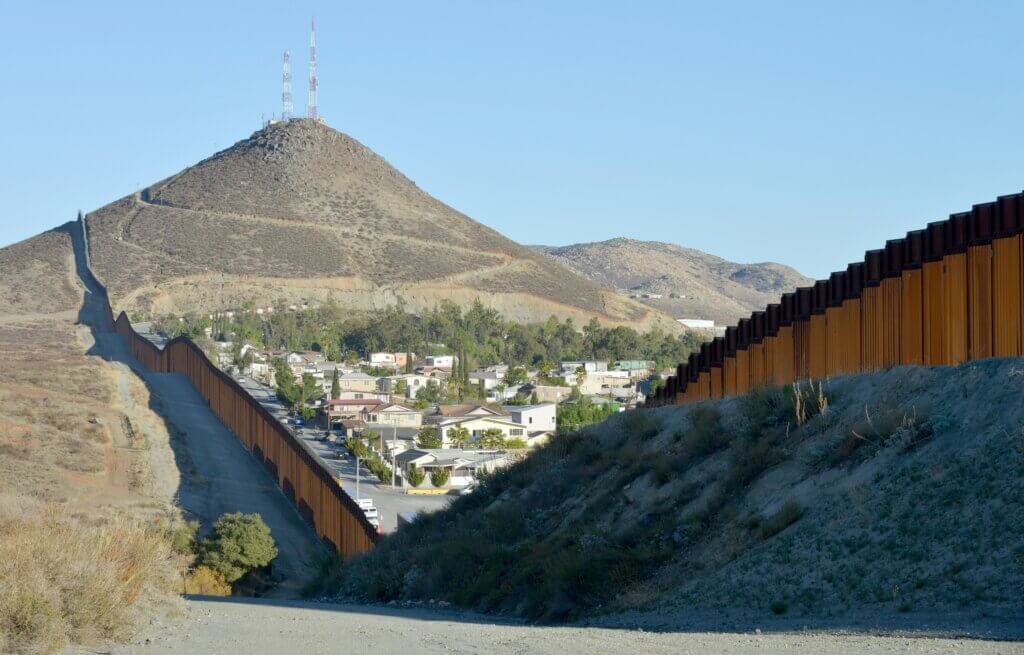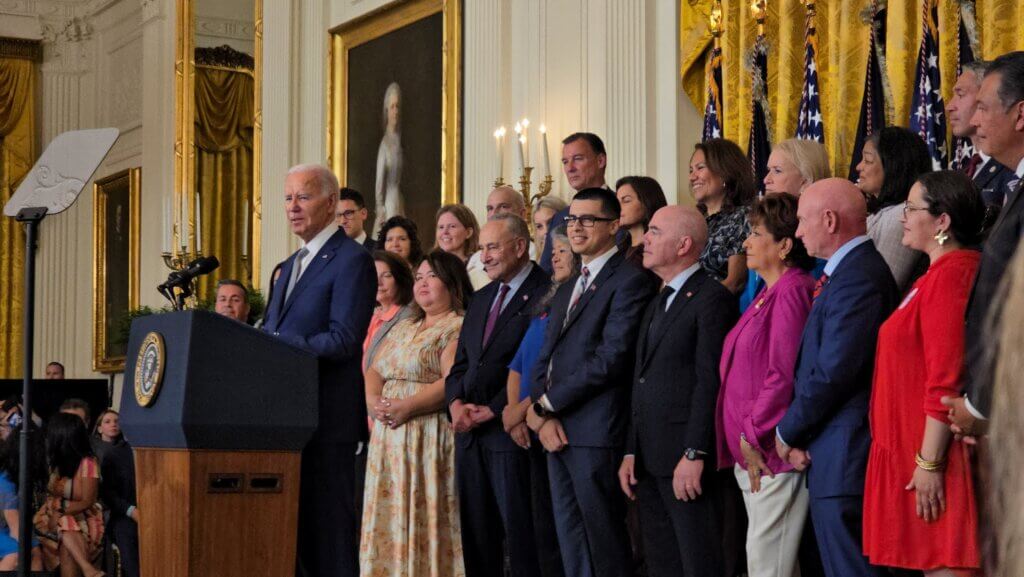Living the American Dream: Hareth Andrade
 Hareth Andrade planned to go to college ever since she was a little girl. She just never imagined the challenges that she would face in getting there. Hareth arrived in the United States without her parents at an early age, and it was years before she would see them again. They stayed behind in Bolivia, hoping that their daughter would have better opportunities in the United States.
Hareth Andrade planned to go to college ever since she was a little girl. She just never imagined the challenges that she would face in getting there. Hareth arrived in the United States without her parents at an early age, and it was years before she would see them again. They stayed behind in Bolivia, hoping that their daughter would have better opportunities in the United States.
With time, Hareth adapted to her new reality and excelled in school. She attended Washington High School in Arlington, Virginia, where she took Advanced Placement and International Baccalaureate classes.

Hareth worked hard and her future looked bright. But one day, while visiting a University of Virginia camp for high school students interested in science, she learned that she would face challenges in pursuing her dreams because she was undocumented. Like many DREAMers, even though she worked hard and felt as American as her peers, she didn’t have the paperwork to prove it.
Hareth explained, “I had heard about Social Security numbers, but I didn’t know what that was. We didn’t talk about it at home. One of the panelists was talking about financial aid and Social Security numbers. I was puzzled, so I asked, ‘What if someone doesn’t have a Social Security number?’ The response was something I did not expect. It felt like a slap in the face.”
Given her accomplishments in school and her talents, Hareth’s opportunities seemed endless. However, after discovering the barriers to higher education that her undocumented status posed, she felt uncertain about her future. Thanks to the inspiration from her guidance counselor, Hareth realized that she could use her talents to push for policy change, so she started advocating for Congress to allow students like her, who had grown up in the U.S., to continue their education and pursue their dreams in the country they call home.
After graduating from high school, Hareth, along with other students, founded DREAMers of Virginia, an organization that has led efforts to provide access to in-state tuition for people who came to the United States as children and graduated from high school in Virginia.
She remembers when President Obama announced Deferred Action for Childhood Arrivals (DACA). Hareth applied in the summer of 2012 and shortly after received her documents, including her work permit, in the mail. “The day I got the card, I called my mom crying, and I told her, ‘Mom, it’s happening! I am going to do all these things I want to do.’”
Now Hareth’s life has changed in ways large and small. “Before it was so limiting,” she said. “One time I could not get into the movie theater to watch the newest Harry Potter movie. I had to show ID to prove I was 18 years old, but since the movie theater staff didn’t take my student ID and I had no state-issued ID, I was not let in. When I held DACA in my hands, it meant so much to me.”
Since receiving DACA, Hareth transferred from community college to Trinity Washington University, where she is pursuing a degree in international affairs. She expects to graduate next year and obtain a job in that field.
Thanks to DACA, there is a clear path for young people like Hareth to enter the workforce. “Applying for jobs has felt like an accomplishment. Writing my Social Security number on a piece of paper felt like an accomplishment. My entire life has been based on this number.”
Hareth has continued to advocate for opportunities for her peers. In 2014, DREAMers of Virginia was instrumental in securing access to in-state tuition in Virginia. Today DACA recipients are eligible to pay in-state tuition at some of Virginia’s colleges and universities, keeping higher education within reach.
When asked what she would like to see next, Hareth said, “I would like to see my parents included in DAPA [Deferred Action for Parents of Americans and Lawful Permanent Residents]. These programs shape lives. Our society can’t exclude the people who help the most. Otherwise we are not helping our country move forward.”



